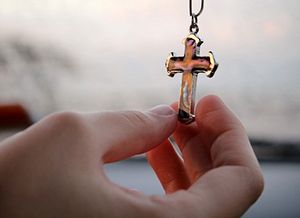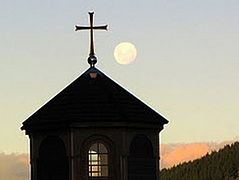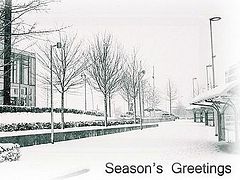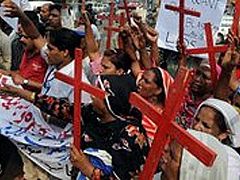Source: stuff.co.nz
Thursday is Christmas Day. For most New Zealanders, this is not much more than a hard-earned day-off, an occasion to gather with family and licence to eat a quite a bit more than one's diet allows.
It is also (particularly for children) about the material aspirations of gift giving.
For New Zealand's Christians, of course, it is also an important religious festival commemorating the nativity of their Man-God. It is the end of the penitential season known as advent and a time of great celebration.
The accoutrements of the season are more than quaint customs and traditions to these people: they are symbols of intense spiritual yearning.
But this is true for fewer and fewer New Zealanders. Overall, we are not a religious society and, truth be told, it is difficult to remain an observant Christian in our present age. Changing times have eroded the faith's once privileged position in our social order.
The informal pressures that kept them in place have been washed away. People no longer feel duty-bound to go along with the extraordinary claims of Christianity and its often-demanding moral injunctions.
Instead, the wider culture is now hostile to orthodox Christianity, which is held to a much higher standard of scrutiny than other religions and cultures.
Those who are quite happy to casually sneer at Christians around the office coffee machine seldom have the courage to do the same when other minority identities are concerned.
Where media commentators are purposely respectful of other faiths, they are seldom afraid to propound ignorantly about Christian doctrine or issue bone-headed advice to Christian leaders.
Last month one of Labour's candidates at the election took to a popular Left-wing blog to publish a tirade against Christians in the party.
The Bible was repeatedly denounced as "snake-oil" and the Christian God was described as "a mean Mutha" who "nailed up his only son as a lesson to other wrongdoers".
It's a free country and those kinds of screeds should not be censored.
But just picture the outcry that would have followed a major party candidate writing anything as remotely incendiary about Islam, Buddhism or Hinduism.
Can you imagine the high-dudgeon and editorial hand-wringing such an outburst would occasion?
But frustrating as this may sometimes be, it's nothing compared to the trials being inflicted on the Christians of the Middle East. In the past 10 years, innumerable Christians have been molested and murdered.
The religion is staring down the barrel of extinction in the very lands from which it sprang.
The scale of the destruction is truly horrifying. In pre-war Iraq, there were more than 1.5 million Christians.
Today, there are fewer than 200,000. Since the coming of the so-called Arab Spring, the violence and intimidation has spread to Syria, Egypt and Libya.
Ancient communities that have existed for thousands of years are simply being wiped from the face of the Earth.
The slaughter is so bad that, according to the secular International Society for Human Rights, 80 per cent of all acts of religious persecution in the world today are aimed at Christians.
This is little reported or analysed in Western media. Occasionally a devastating church bombing or mass execution will make it into the international pages of the newspaper or merit a brief mention on the television news.
However, the coverage and attention paid to such atrocities is nothing like that afforded to the backwoods pastor of a tiny, inconsequential Florida church threatening to burn the Koran.
Why are we so apathetic to this very historical phenomenon? Holdover resentment at the religion's once dominant position in the West may be part of the reason. However, I suspect that it's badly exacerbated by the fact that an appalling proportion of our political and cultural elites are just shockingly ignorant of history.
The veteran religion journalist Rupert Shortt reports that, when the matter of anti-Christian pogroms in Iraq was raised with the British Government, very senior government ministers would typically respond with statements like "well, if Christians are going to march into these Muslim countries and try to convert them then what do you expect?"
Of course, far from being a Western import to the Middle East, Christianity is one of the its most consequential exports. It also predates the Islamic presence in the region by centuries. Apparently the expense of an Oxford or Cambridge education is no guarantee that the people who so arrogantly meddle in geopolitics will have an elementary grasp of history.
There is no doubt about it: Christianity is in decline in New Zealand and its various denominations have challenging times ahead. And yet the faithful in this country still have plenty to be thankful for this Christmas. Things could be a lot worse.





Fr.Joseph Farooq (ROCOR Priest Pakistan)